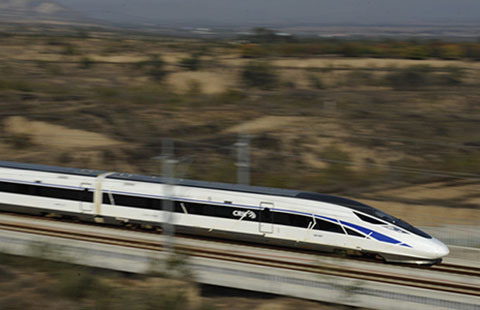Emergency patient 'crawls' onto stretcher unaided
(Xinhua) Updated: 2015-12-01 11:19BEIJING - After falling ill on a flight to Beijing earlier this month, a Chinese passenger learned the true meaning of "patient," as he had to "crawl" to his own stretcher and was ferried between hospitals.
Beijing's health watchdog is investigating the incident after the passenger, surnamed Zhang, filled a complaint. Observers are asking how an incident like this could happen, and what it says about the wider accident and emergency system.
Zhang was on a China Southern Airlines flight on Nov 9 when he fell ill. After landing, air stewards and staff of the Beijing Capital International Airport Hospital butted heads over who should carry him off the plane.
Seeing no other option, Zhang crawled off the plane and onto the stretcher himself, the National Health and Family Planning Commission said Monday in a statement.
According to a social media post by Zhang on Nov. 26, the ordeal did not end there. He said that the airport doctors were unable to treat him and he was told he would be transferred to nearby hospitals. But, again, an argument over responsibility erupted, this time employees from the Beijing Red Cross emergency rescue center refused to carry him. In the end, a security guard stepped up and helped Zhang into the ambulance.
The driver of ambulance decided to take Zhang to a different medical center, which was further away, despite the original transfer hospital having a fast-track system for emergency patients.
According to Zhang, he spent over three hours having multiple checks at the center while his condition worsened. Even then, the center was reluctant to transfer him elsewhere, despite the obvious need to do so.
"Distance is the top concern in a first aid situation, and health workers should ensure the patient is taken to the nearest, most competent hospital," said Pan Shuming, with the Xinhua Hospital under the Shanghai Jiao Tong University School of Medicine.
Zhang was transferred three times before having a section of his small intestine removed at Peking University People's Hospital. Even so, he may not have even been treated had he not called in a favor from "a doctor friend," according to The Beijing News daily.
Zhang posited that the center and its health workers might get extra money from treating a patient in their own place.
"This seems to be an individual case, but it has exposed major issues concerning the management, technology and workers involved in first aid," said Li Zonghao, a senior official with the China Association for Disaster and Emergency Rescue Medicine.
Staff with both the airline and the airport have apologized and offered compensation. The emergency rescue center said that the matter is under investigation, and the Beijing Red Cross, the center's superior organization, has yet to comment on this.
- Mainland releases two Taiwanese spies
- Amid severe smog, Beijing orders halt to production
- Emergency patient 'crawls' onto stretcher unaided
- Gay stigma hindering HIV prevention in China
- 400,000 people to move to suburbs amid Beijing's administrative shift
- Premier Li vows AIDS battle
- China has 575,000 people with HIV/AIDS
- New rules to rein in illegal flying of civilian drones
- Lung cancer patients to number 800,000 per year by 2020
- Siberian tiger tracks found inside reserve







